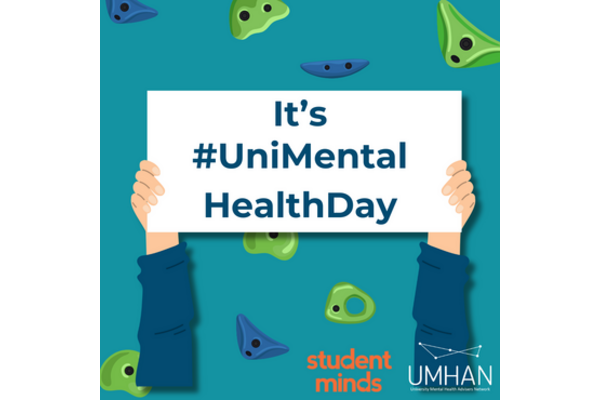Depression is a very solitary experience and as such, acknowledging that you have a problem is something that can be very hard to do. I have suffered from depression and anxiety for the last three years and wanted to share some of my experiences so that other people don’t make the same mistakes I did, and get the help they need, when they need it.
University is a big step from school; an absence of structure and a reliance on oneself to organise one’s own affairs can be a daunting prospect for some. I, initially, found this environment tough to deal with. With no one to help regulate my day to day life, I found myself more often in the pub than in lecture halls and this fairly quickly had an impact on my mood and well being. I can now acknowledge that, within my first term of university, I was in a depressed state, suffering in silence and watching the world go by. From what I now know three years on, writing this blog, I wish I had sought the help that I needed then because I would have saved myself a hell of a lot of pain and suffering. Acknowledging to yourself that you have a problem is, perhaps, the most important phase in helping to deal with depression. However, far too many people, in acknowledging their problems, do not follow up and seek out the help that they need.
It was a further 8 months until I told someone in my family that I was depressed and 10 months before I went to see my GP. Telling my mum and dad that I was feeling depressed and had anxiety issues was one of the hardest things I have had to do in my life. This step, however, was vital in my recovery from this specific depressive episode. Those who love you are not going to judge you when you take this step, far from it. They can be a source of comfort and help you to access the medical support that you need. The very process of sharing this information can be quite cathartic. Whilst telling my family I was depressed was a hard thing to do, I felt more secure knowing that the people who cared for me most in the world understood what had been going on and how I was suffering. What I had not appreciated at the time, but do now, is that universities are equally sympathetic in their approach to students suffering with mental health difficulties. At my university, there were various programmes specifically aimed at helping those with mental health issues, whilst from an academic perspective universities will be supportive in times hardship and make special allowances for your studies.
A good place to start for help whilst at university is a university's counselling service. Most, if not all, universities will have these support systems in place and they can provide a wide range of services, from one-to-one sessions with qualified psychotherapists to group sessions with other students suffering from similar mental health issues. The university I attended offered a broad range of such sessions including workshops on managing anxiety; exam stress; procrastination; assertiveness; confidence and self-esteem; low mood; and speaking out in groups. Most counselling services can also point you in the right direction to getting help through your local NHS provider. The people you will deal with in these situations will be calm, caring, professional and perhaps most importantly non-judgmental on your personal situation, which will take a lot of the pressure off you.
The experience of my first year at university and the processes involved in getting better became significant again 5 months ago when I began to experience a new episode of depression and anxiety. This time I was better equipped to deal with my problems because I knew that my family would support me, and help me get the medical attention that I needed. Depression is always a personal experience but if you take the active steps of telling someone in your ‘support network’ - whether this be a friend, a member of your family or indeed someone at your universities welfare department/ counselling service - steps can, and will, be taken to help you get better. If I could give you one piece of advice, it would be to not suffer in silence, embrace your problems because there is no shame in suffering from a mental illness - it does not make you a weak person.
UMHAN note: The author has written of their personal experiences in disclosing, emphasising the role of the GP and university counselling services, as these were the services that the author felt most appropriate for them. It is worth noting that a range of other professional services are available which students have access to. For example, the role of the GP is also about gatekeeping to other specialist services. Additionally, many universities have a dedicated mental health/wellbeing team, along with Mental Health Advisers. If you are experiencing a mental health difficulty, you have a choice in who you choose to disclose this to and a choice in the support that can be offered.









